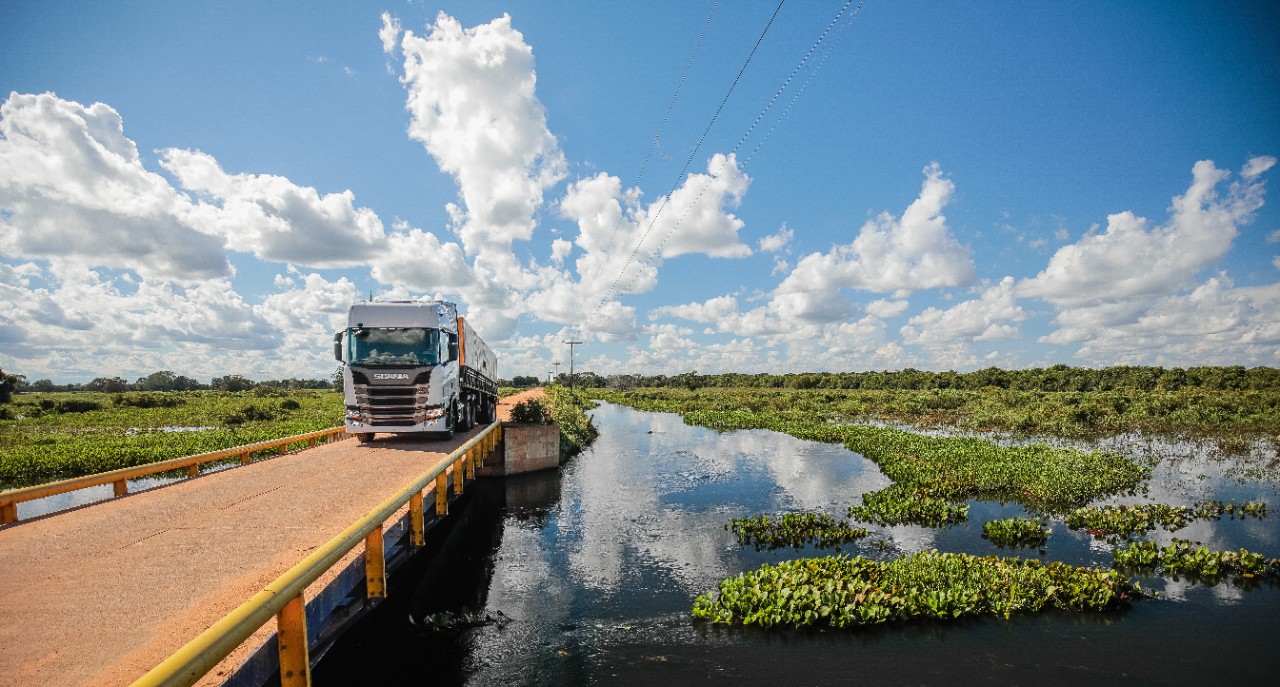
Unleashing the bioeconomy potential
09 JULY 2020
A new coalition of forward-looking businesses and senior leaders will drive change across the bioeconomy value chain. BioAdvantage Europe aim to show a path to sustainable high-quality growth and decarbonisation of our society.
The bioeconomy has a vital role to play in creating low-carbon growth and durable jobs in Europe. But progress has stalled because the sustainability impact of biofuels is contested and trust is low. To move beyond this impasse a new approach that drives systems-level action by focusing on the bioeconomy as a whole is needed.
Acting alone is not an option when developing a resilient, thriving bioeconomy. Scania is working in partnership with other companies across sectors, who share the vision for a thriving and sustainable bioeconomy in Europe.
Full potential for biofuels
2018 Scania launched a collaboration with Xynteo, a cross-industry platform for connecting ideas, to explore the full potential for biofuels and the wider bioeconomy in Europe.
“Sustainable biofuels are the only technology that can enable us to make cuts in emissions quickly enough, here and now, in vehicles that are on the road. And we are simply not doing enough in Europe to fulfil the opportunity that biofuels offer,” Scania´s CEO Henrik Henriksson then noted.
Over the past year, Scania has worked together with companies like Avril, Lantmännen, Novozymes, Neste and Yara, to identify opportunities for unleashing growth in the bioeconomy in Europe. The project has engaged experts, business leaders and stakeholders across different sectors of the bioeconomy, to map opportunities for growth and identify barriers to its development.
End-to-end perspective
“What differentiates our initiative is that it is driven bottom-up by the private sector and takes a comprehensive end-to-end perspective of the bioeconomy says Åsa Pettersson, Scania´s Head of Public Affairs & Sustainability. “It provides a platform to create pilot projects showing the value of the bioeconomy and is policy-focused for immediate impact on Europe’s economy.”
The partners in the BioAdvantage Europe coalition will be working together to build awareness and understanding of the bioeconomy, provide clear and credible guidance to policymakers on social, sustainability and carbon implications of bioeconomy policy decisions and explain the benefits of the bioeconomy for decarbonisation, rural growth, jobs, innovation and society.
Why now?
“Time is short, and the bioeconomy can make an impact now so we can contribute to limiting global warming to 1.5 degrees as in the Paris agreement. EU emissions from the energy and transport sectors need to halve from 2020 to 2030. The bioeconomy can rapidly decarbonise industries at scale in the crucial period before 2030, when electrification can first be expected to make a substantial impact,” Åsa Pettersson says.
Sustainable biofuels can deliver rapid and significant decarbonisation in road transport, in the crucial period before 2030, when electrification can first be expected to make a substantial impact. It will be needed for that and in other hard-to-abate sectors such as shipping and aviation, as well as heavy industry, for decades to come.
A wider potential
But an innovative bioeconomy sector can also make a significant contribution in other areas, according to the coalition:
Economic growth with one million new green jobs could be created in the bio-based industries by 2030.
Sustainable land use can deliver climate change mitigation and improve soil quality, food security and biodiversity.
Making productive use of bio-based waste streams and locally-grown feedstocks will create economic and environmental benefits, including reduced landfill, waste-to-energy solutions, returning nutrients to the soil and less dependence on fossil fuels.
Learn more about the BioAdvantage Europe coalition at the website